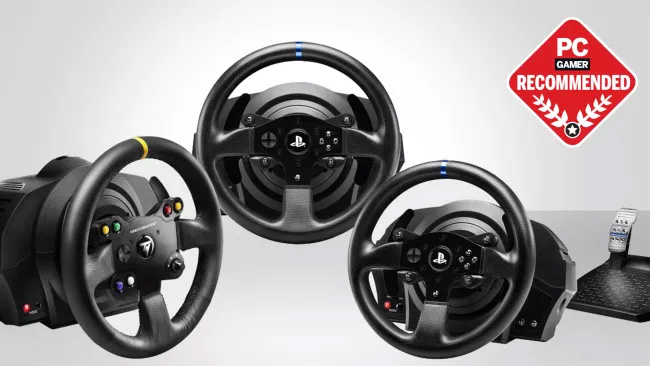Valve's Index successor rumoured to be a standalone VR headset
Proof of concept files for a potentially AMD-powered wireless headset, codenamed 'Deckard,' have appeared in Steam VR.

Valve may have another VR headset design in the works to follow up the excellent Index, but this time it could be completely standalone. Similar to the Oculus Quest VR headsets, the Blade Runner-inspired 'Deckard' codename looks to be for a standalone option—that means it'll use its own processor, battery, and inside-out tracking solutions rather than utilising the hardware inside your PC.
The rumour gained traction after YouTuber Brad Lynch exposed what a friend, with the borderline unpleasant username of 'm3gagluk', had uncovered in the Steam VR foldersa sus codename hidden in a lighthouse driver file inside Steam VR folders. These consist of input profile references, and proof of concept (POC) files which reveal that "Valve had been retooling the Deckard to work with Steam VR for the past year," says Lynch.
There has been some scepticism around the discovery, but with wireless headset patents having popped up in March—along with others patenting straps that include a pair of Wi-Fi receivers—there's a lot of potential for it to become a reality.
In a recent interview with The Verge, Valve product designer, Greg Coomer, expressed that the semi-custom AMD processor used in the Steam Deck has great potential for use in a standalone VR headset design, noting, "It would run well in that environment, with the TDP necessary... it’s very relevant to us and our future plans."
Potentially very relevant. Though what VR gaming platform such a headset would run is a tougher question. The Oculus Quest 2 runs its own suite of games from its own store, while the titles on offer via Steam VR generally require more high-end PC components to run well.

Best PC racing wheels : perfect for any circuit.
Best VR headset: which set is right for trackdays?
Either way, with another string having been added more recently, indicating a third iteration of the Deckard's proof of concept, it's looking more and more likely that we'll be seeing a successor to the Valve Index coming into the picture soon.
That is very exciting, especially since the original Index made its way so swiftly into your line up of the best VR headsets with its impressive specification. A wireless, AMD-powered standalone version, which could even work tethered to a PC as well, would certainly be a welcome addition to the family.
Keep up to date with the most important stories and the best deals, as picked by the PC Gamer team.
The discovery also puts more weight into the future of VR potentially being dominated by standalone headsets, and away from PC-based VR.

Screw sports, Katie would rather watch Intel, AMD and Nvidia go at it. Having been obsessed with computers and graphics for three long decades, she took Game Art and Design up to Masters level at uni, and has been rambling about games, tech and science—rather sarcastically—for four years since. She can be found admiring technological advancements, scrambling for scintillating Raspberry Pi projects, preaching cybersecurity awareness, sighing over semiconductors, and gawping at the latest GPU upgrades. Right now she's waiting patiently for her chance to upload her consciousness into the cloud.

